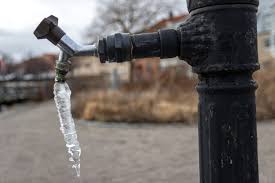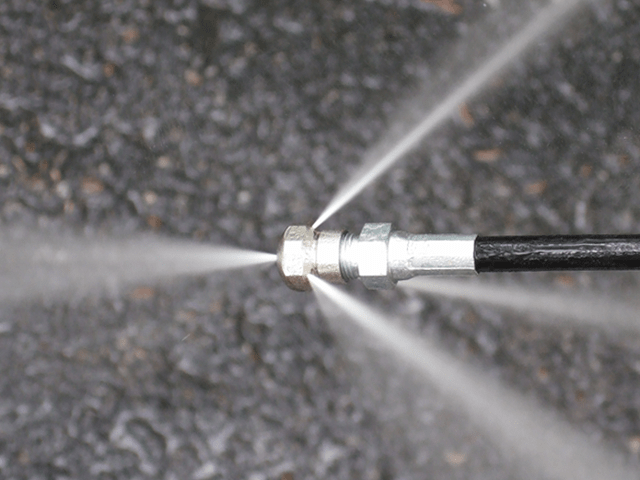Just how do you really feel when it comes to How to stop pipes from freezing during the winter?

All homeowners that live in pleasant climates have to do their best to winterize their pipelines. It is something you should do during autumn prior to deep winter months genuinely starts. Failing to do so can mean catastrophe like frozen, cracked, or ruptured pipes. Right here are some convenient winterizing hacks to maintain your plumbing system protected even if the weather condition outside is frightful.
Activate the Faucets
When the temperature level declines and also it appears as if the frigid temperature level will last, it will assist to switch on your water both inside your home and outdoors. This will maintain the water flowing via your plumbing systems. In addition, the movement will slow down the freezing procedure. Especially, there's no need to transform it on full blast. You'll wind up wasting gallons of water this way. Rather, go for about 5 drops per minute.
Open Up Closet Doors Hiding Plumbing
When it's cold outside, it would certainly be helpful to open cabinet doors that are masking your pipelines. Doing this tiny method can keep your pipes cozy as well as limit the possibly unsafe outcomes of freezing temperatures.
Require Time to Cover Exposed Pipeline
One simple as well as nifty hack to warm up cold pipes is to cover them with cozy towels. You can also utilize pre-soaked towels in warm water, just do not forget to use safety handwear covers to secure your hands from the warm.
Attempt a Hair Clothes Dryer or Warmth Gun
When your pipelines are nearly freezing, your dependable hair dryer or warmth weapon is a godsend. Bowling hot air directly into them might aid if the warm towels do not help remove any kind of resolving ice in your pipes. Do not make use of other objects that create straight fires like a strike lantern. This can cause a larger catastrophe that you can not manage. You may end up damaging your pipelines while attempting to melt the ice. And in the long run, you might also wind up burning your residence. So be cautious!
When Pipelines are Frozen, shut Off Water
Shut off the major water valve immediately if you observe that your pipelines are completely frozen or practically nearing that stage. You will generally locate this in your basement or utility room near the heater or the front wall closest to the street. Turn it off as soon as possible to avoid more damages.
Don't neglect to close external water resources, also, such as your connection for the garden home. Doing this will prevent added water from filling your plumbing system. Regrettably, with more water, even more ice will certainly pile up, which will eventually cause rupture pipelines. If you are uncertain about the state of your pipes this winter months, it is best to call a professional plumber for an inspection. Taking this aggressive approach can save you hundreds of bucks in repairs.
All property owners who live in warm climates need to do their ideal to winterize their pipelines. Failure to do so can spell disaster like icy, cracked, or ruptured pipelines. If the hot towels do not help displace any kind of resolving ice in your pipelines, bowling hot air straight into them may aid. Turn off the major water shutoff promptly if you discover that your pipelines are totally frozen or nearly nearing that stage. With even more water, more ice will certainly pile up, which will at some point lead to rupture pipes.
PREVENT YOUR PIPES FROM FREEZING THIS WINTER
A Leading Cause of Property Damage
When the weather is taking a deep nose dive into the cold dreary days, the risk of your pipes freezing and potentially bursting skyrockets. Unfortunately, during these cold dreary months, burst pipes are the most common denominator for property damage. The pipes that are most at the risk are those that are in areas where it is most cold in your home. For instance, pipes located in interior places such as basements, attics, and your garage. Unfortunately, that doesn’t mean that the pipes running through your cabinets or exterior walls can’t freeze. Good news, however, is that you can do things to help prevent pipes from freezing.
How to Prevent Pipes From Freezing
Once the temperature starts to drop during the winter, you should be taking the proper measures needed to ensure that your pipes stay warm and that there is circulation of water through them. Some steps that experts may recommend could go against your better judgement when it comes to saving water and heat. However, it would go without saying that when expenses are compared, damaged pipes could put a bigger dent in your wallet than a water bill.
What Can I Do?
Keep your garage door closed. This is very important, especially if you have water supply lines running through your garage. Open your kitchen and bathroom cabinets to allow warm air to circulate through them. Allow air circulation throughout your home. Keeping the interior doors open will once again allow the warm air to circulate inside your home. Ensure your thermostat is running the same temperature throughout the night and day. If you plan to be away from home during the cold months, set your temperature no lower than 55° F. This should provide enough heat to keep the pipes warm and prevent any remaining water inside the pipes from freezing. For more of a long-term solution, add insulation to attics, basement, and other crawl spaces around your home. By allowing your faucet to drip, it will alleviate pressure in the system. This is important because the pressure that is created between the blockage and the faucet can potentially cause the pipes to burst. Allowing the faucet to drip will prevent the pressure from building up, therefore keeping the pipes from bursting. Seal any cracks, openings, and crawl spaces around your home to prevent cold air from coming inside. This keeps your pipes-not to mention your home-warmer and less susceptible to issues caused by freezing temperatures. For the pipes in your home that are easily accessible, applying electrical tape to them might prevent them from freezing over. This is a quick fix, as you can apply the tape directly to the pipe. There are two options for heating tapes. One turns on and off by itself when it senses heat is needed. The other type of heating tape needs to be applied when heat is needed and removed when not necessary. If you have exposed pipes in your home, you can check this website to take a look at a few options that would be available at a shop near you.

Do you appreciate more info about Winterizing Your Pipes? Create a remark directly below. We would be glad to find out your thinking about this write-up. We are looking forward that you visit us again in the near future. So long as you appreciated our article please don't forget to pass it around. I recognize the value of reading our article about Winterizing Your Pipes.
Request Free Estimate